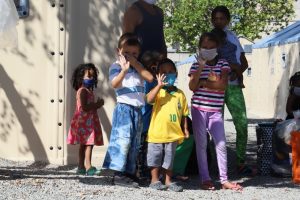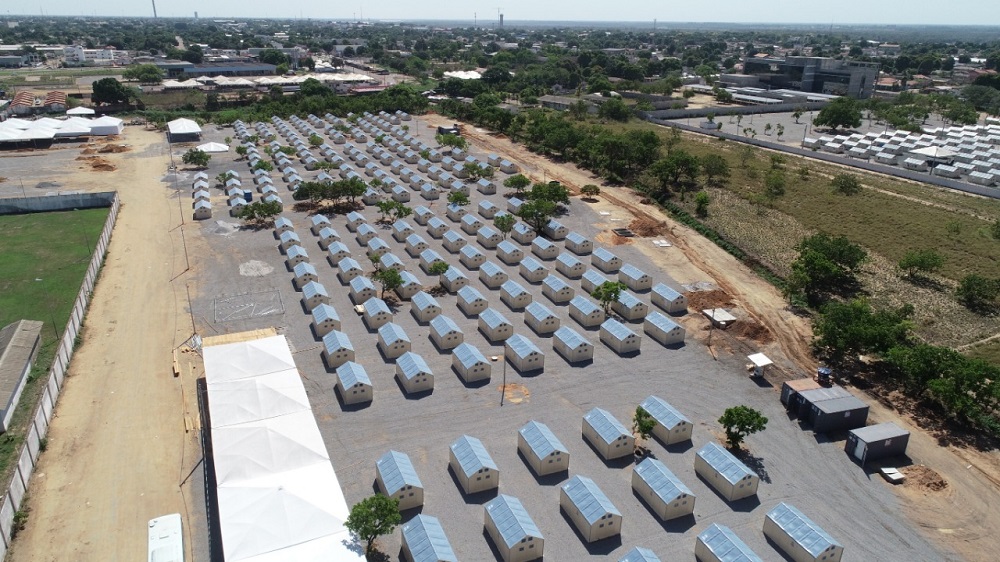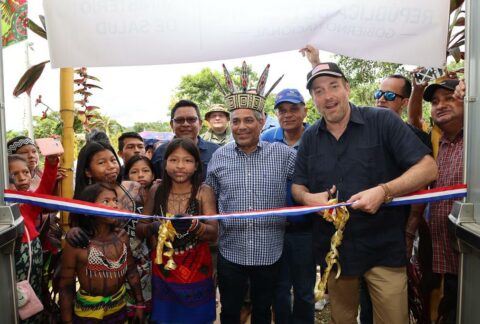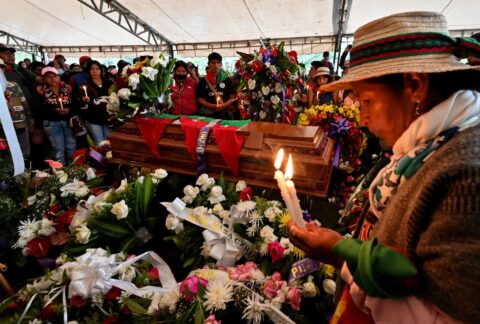Boa Vista, in Roraima state, now has facilities specifically dedicated to providing services to refugees and vulnerable Brazilians. The state, in northern Brazil, has about 5,500 Venezuelans, who in addition to the crisis in their home country, face the threat of the coronavirus.
The Protection and Care Area (APC, in Portuguese) began operating on April 26. In late March, the installation of the facilities began with the transfer of the Brazilian Army’s (EB, in Portuguese) field hospital from Pacaraima, on the border with Venezuela, to Boa Vista. About 125 service members — assigned to Operation Welcome (Operação Acolhida) Humanitarian Logistics Task Force — participated in the construction of the APC. Operation Welcome is an initiative of the Brazilian Ministry of Defense tasked with receiving and relocating Venezuelan refugees since 2018.

Sixty five Brazilian and Venezuelan civilians also worked on the construction of the APC. “I feel very useful here, being able to help with this work for people’s well-being. I feel very proud,” said Venezuelan José Costa, who has been living in Brazil for a little over a year.
The APC is divided in two areas. The protection area aims at reducing the spread of the virus. It has 220 housing units, which the United Nations High Commissioner for Refugees (UNHCR) donated in addition to 2,500 beds, mattresses, cleaning supplies, and personal hygiene kits. This area provides shelter and isolation to those who await COVID-19 test results or to those who have tested positive, but show mild symptoms. About 80 Venezuelans were transferred to the protection area during the first week of operation — eight were infected.
The care area receives confirmed cases that require treatment. The facility has 80 hospital beds, with a total capacity of up to 1,025 beds. Service members, professionals hired by the International Organization for Migration, and local government employees comprise the health team assigned to this area.
“The solidarity of civil society is also crucial to the completion of the hospital and all service activities. The APC received many donations, such as machines and personal protective equipment,” Operation Welcome Public Affairs Office said.
Close observation
In addition to the initiatives for patients who may be infected, refugees in Roraima and other Brazilian states have been receiving support at their shelters — there are 12 in the state of Roraima — and at sites called spontaneous camps, where immigrants settle temporarily. Operation Welcome has been sending service members to visit these sites and to disinfect the area.
“We are also working on spreading information regarding hygiene habits to prevent COVID-19. The information is distributed in several languages: Portuguese, Spanish, English, French, and Arabic,” said Luiz Fernando Godinho, a UNHCR public information officer. In some cases, along with guidelines, people have received hygiene kits, which are distributed primarily to the most vulnerable groups, such as the elderly and children. In March, these kits reached more than 7,300 people in Roraima, Amazonas, and Pará states.
Some professionals from UNHCR and partner organizations are helping refugees update their documentation. The goal is to provide access to benefits, including financial aid, that the Brazilian government is providing.









